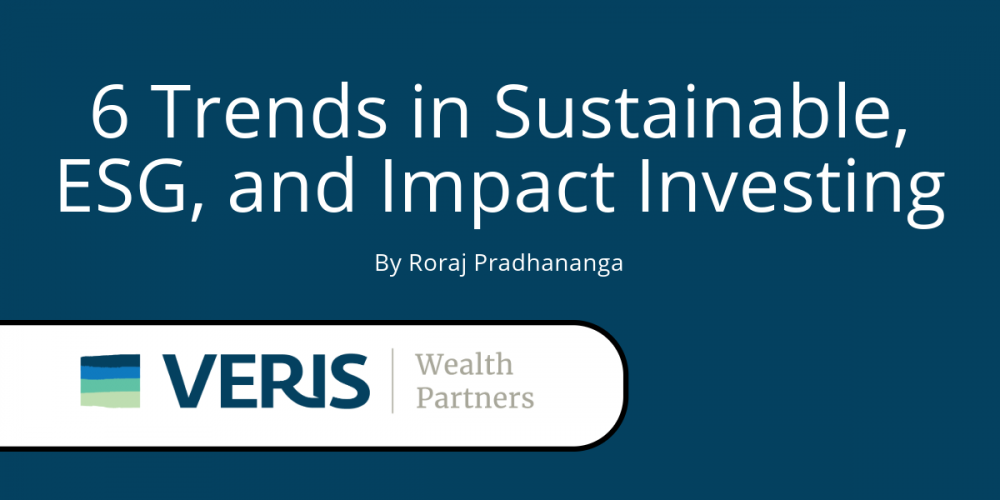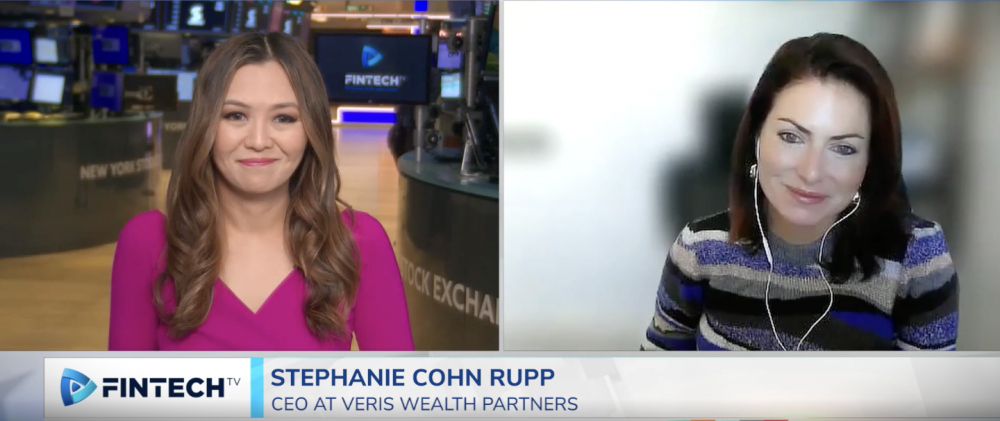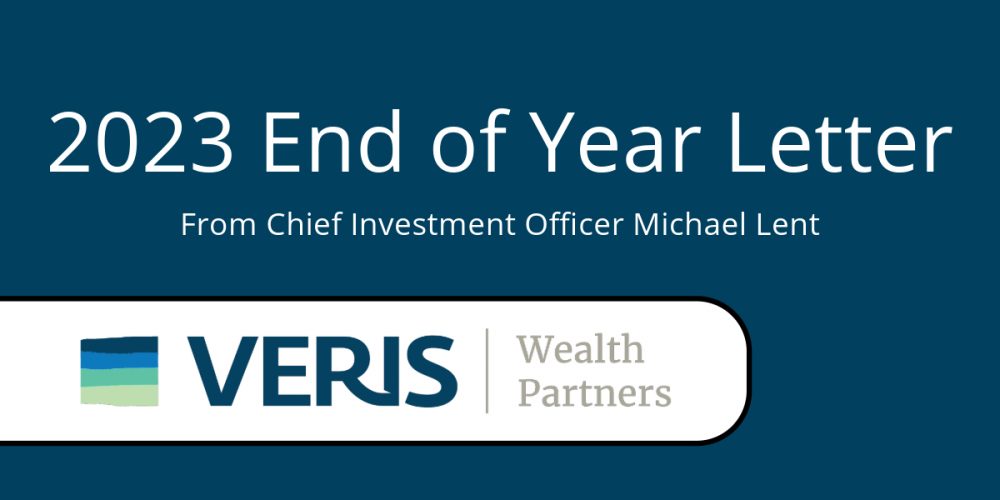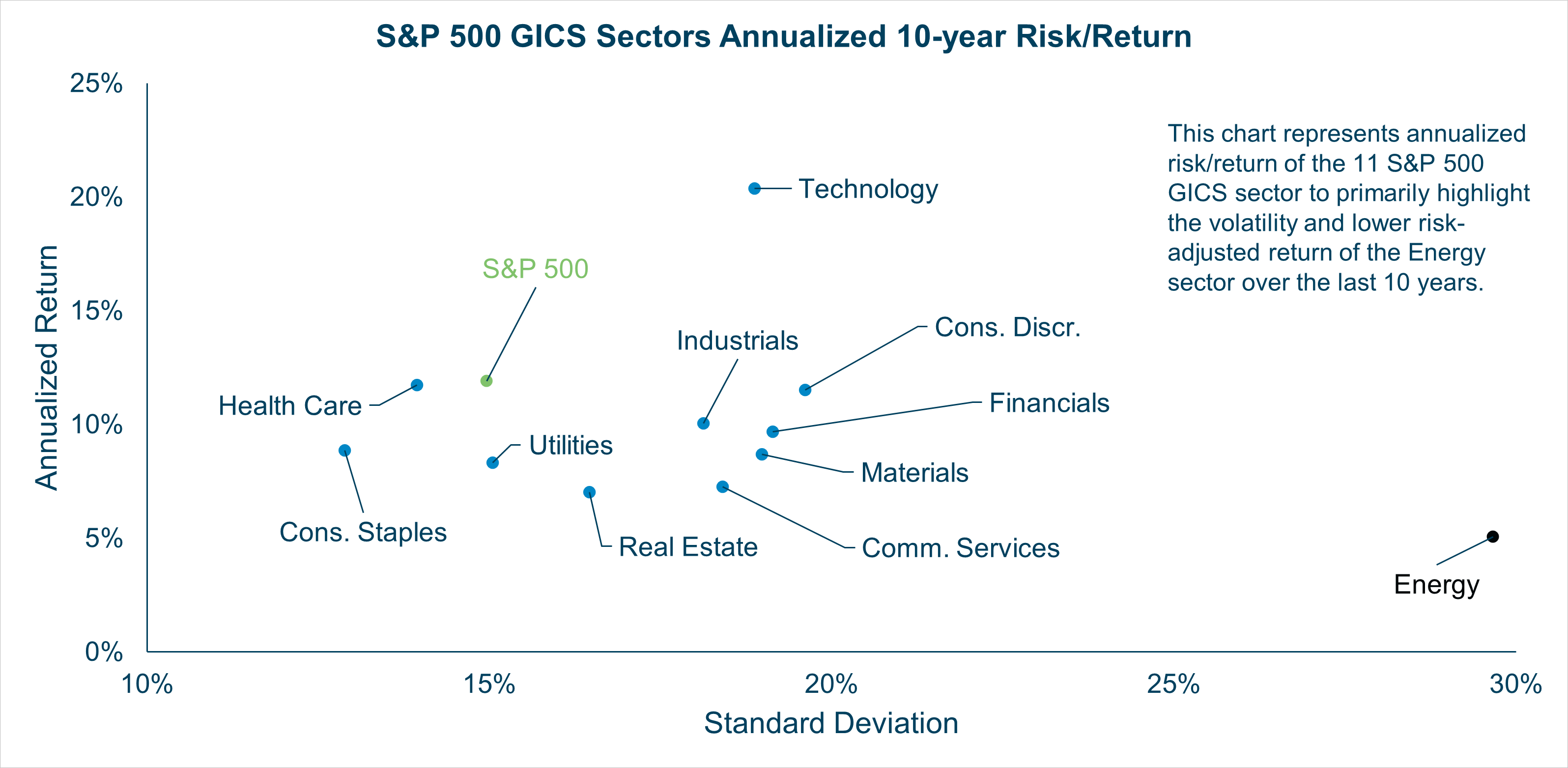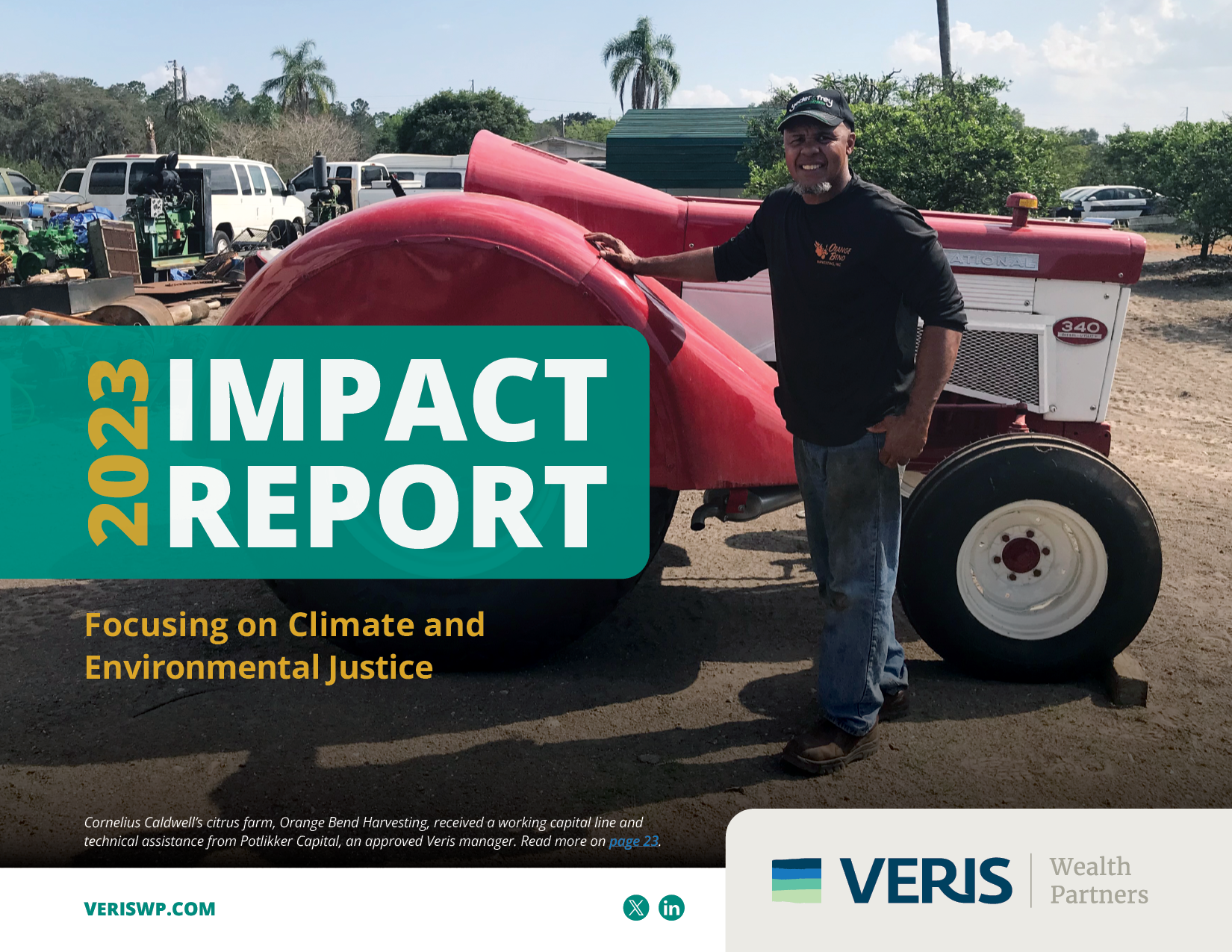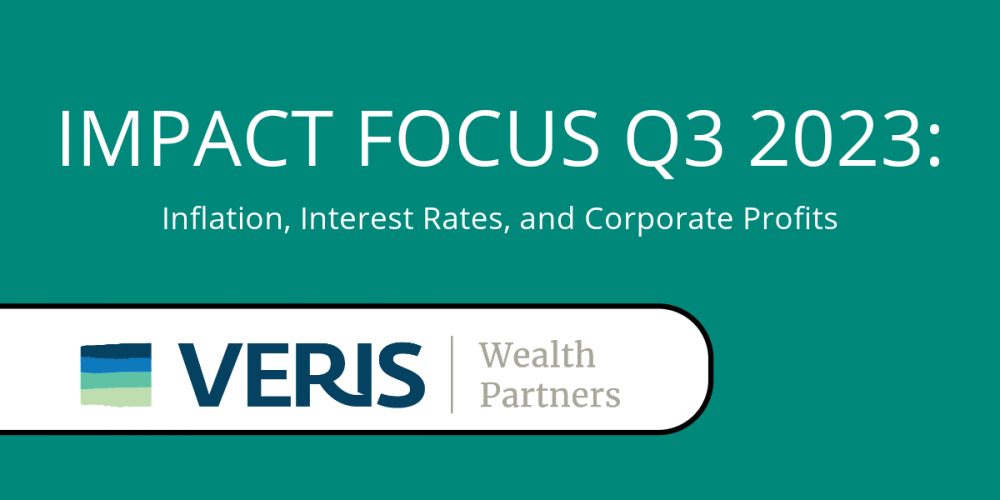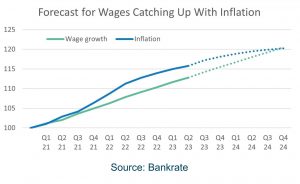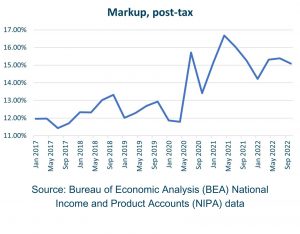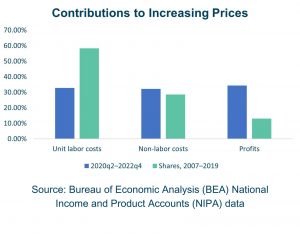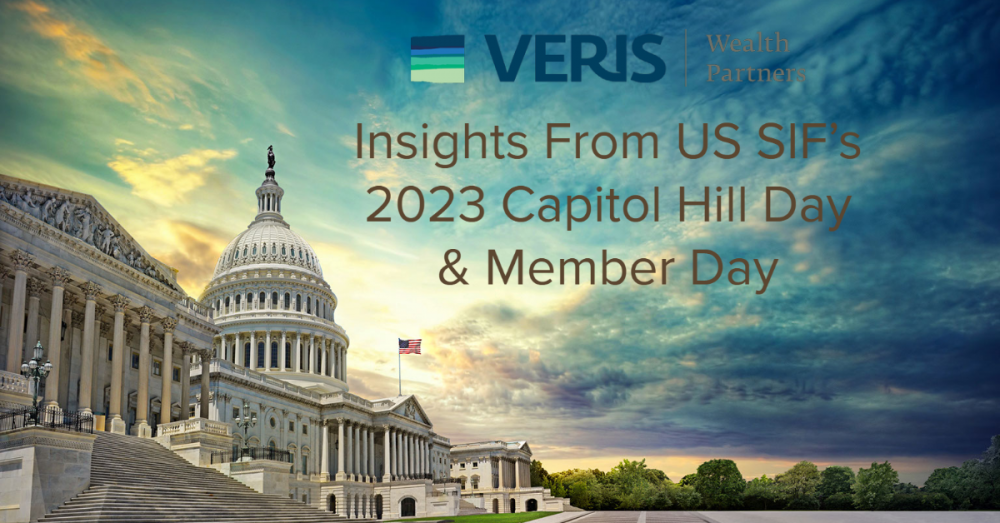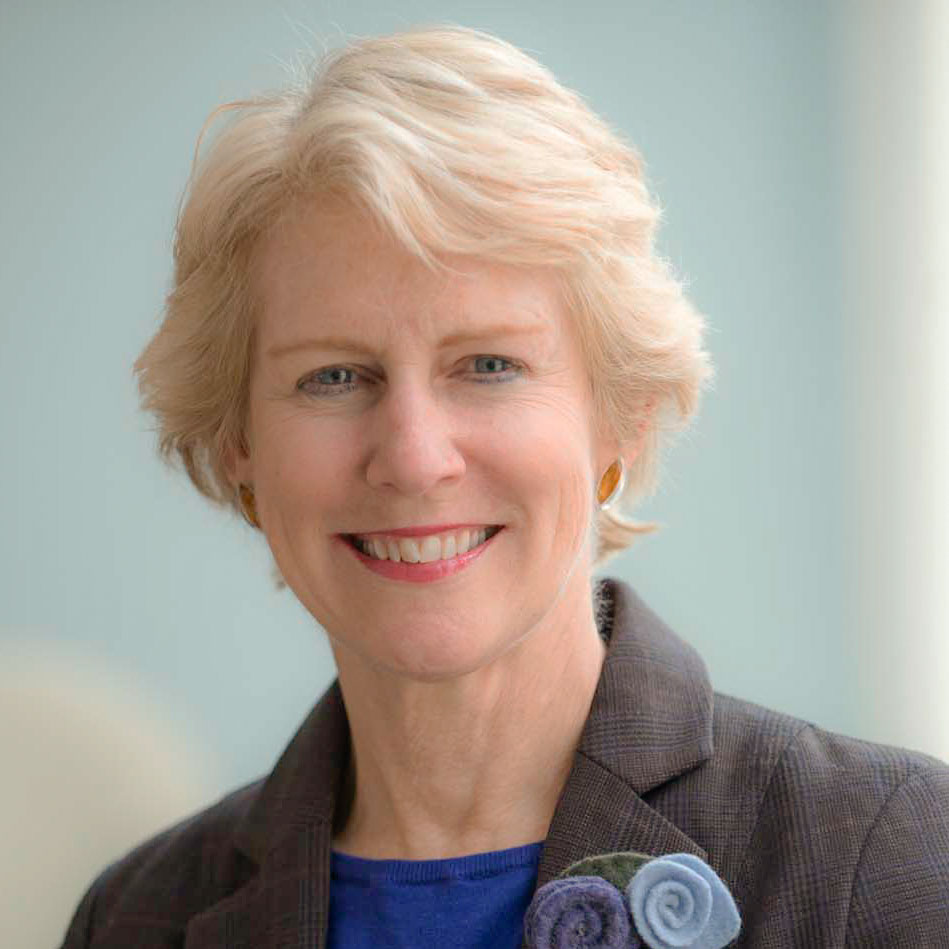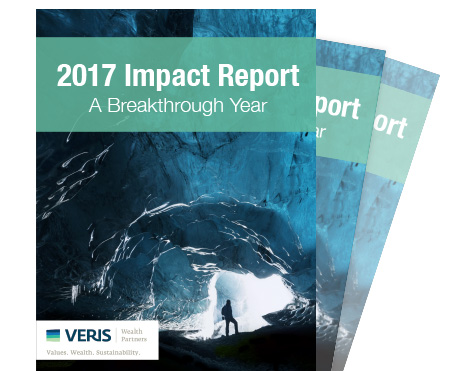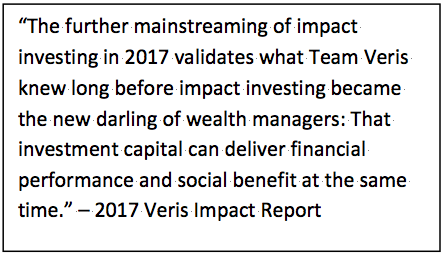Veris Interview Series: Dr. Ruth Shaber, Gender Lens & Impact Leader
Full Transcript
Lori Choi, CFA: My name is Lori Choi. I’m a Partner and Senior Advisor at Veris, and I’m also a co-founder of WISE or Women Investing for a Sustainable Economy. We’re a community of over 3,000 women focused on advancing women’s leadership and sustainable and impact investing.
I’ll be leading today’s interview with Dr. Ruth Shaber. Our agenda today will include introductions to Veris, for those of you who don’t know us, and Ruth’s background – covering her career in medicine and her journey to starting Tara Health Foundation. And her book The XX Edge, and what she’s been up to lately with the Diverse Investing Collective. We’ll also have time for some audience Q and A at the end. So look forward to hearing your questions.
I wanted to share a little bit about Veris for those of you who may not know us well. Veris is an independent, woman-led financial advisory firm. We help families and nonprofit organizations align their investments with their values, and we work with clients across the US. And our vision is to create an equitable, just, and sustainable world. And our mission is to use financial markets to direct capital to sustainable and regenerative endeavors.
Veris’s co-founders were pioneers, starting in the field of values-aligned investing in the nineties, and then came together in 2007. Inspired by their passion for social and environmental activism, they created one of the first impact focused financial advisory firms in the United States. And today we have deep investment capabilities across public and private markets and build client portfolios with up to a hundred percent focus on achieving impact in the context of our clients’ financial goals.
Veris launched our gender lens investing research in 2012, which sparked a series of thought pieces and collaborations with other gender lens investing catalysts to track asset growth in the industry and more. Big thanks to Veris’ Gender Lens Investing team past and present, especially Alison Pyott and two who have retired from the firm – Luisamaria Ruiz Carlile and Patricia Farrar-Rivas, our founding CEO.
Veris works on behalf of clients who invest in multiple impact themes with an intersectional approach, because we know that many of these issues are related. And several years ago we expanded our core impact investment theme of gender lens investing to include racial and gender equity, which I think we’ll talk about with Ruth as well in her journey. Veris’ other core impact themes include climate solutions and the environment, community wealth building, sustainable and regenerative agriculture. And these are just some of the most common themes our clients prioritize. But we really work individually with each client to customize based on their own priorities.
Today’s conversation is one we’ve been looking forward to for a long time, and we are thrilled to lift up the work of one of the impact investing industry’s leading diverse investing catalysts in Ruth.
I first saw Ruth presenting about Tara Health Foundation in New York City years ago, and remember thinking to myself how unique of a perspective that she brought, having been a successful OB GYN and then senior executive at Kaiser Permanente to then and now, speaking to financial professionals and investors alike. She’s on the leading edge of funding evidence informed programs through Tara Health Foundation to promote women’s wellbeing and opportunities. And she’s done this on both the grant making side and the investing side, which has been really wonderful to learn about.
She’s also the co-founder and board chair of Rhia Ventures, a collective of foundations and investors committed to bringing new types of capital to the reproductive health field. And, alongside co-author Patience Marime-Ball, she recently published the book The XX Edge, Unlocking Higher Returns and Lower Risk which serves as the basis for her new initiative, the Diverse Investing Collective, that aims to increase the assets managed by gender diverse and racially diverse teams to 33% by 2033. Welcome, Ruth. Thank you so much for being here.
Dr. Ruth Shaber: Thank you, Lori, and thank you for that lovely introduction. I want to thank you and Veris for all the work you do. You have also been tremendously important in the field, and have been breaking new ground for quite a while, so very grateful for all that you do.
Lori Choi, CFA: Thank you so much. Jumping in on your background in medicine – how did your work in obstetrics and gynecology lead you to your current work with Tara Health Foundation?
Dr. Ruth Shaber: There is a through line, actually. I had a wonderful career in medicine as an obstetrician gynecologist with a special interest in reproductive health. But I also had a lot of executive positions at Kaiser Permanente, and my most recent job there was overseeing the national population care programs. Which means that my responsibility was translating evidence and medical research into actual practice. So this idea of evidence-based medicine and designing systems, systems engineering and performance improvement. And when I left Kaiser, I was determined to use all of these principles in my new career in philanthropy and impact investing.
Among the other important things I learned in my career in medicine, is that who controls capital matters and in women’s health there’s been such an absence of funding and prioritization of women’s health innovation that it really is a desert for innovation, and whether it’s trying to get a new grant or lobbying your senior executives for funding for some new proposal. It was clear that if you don’t have the budget you can’t get anything done.
And then my other commitment is to women’s health, and really understanding how central women are not just to their to their own wellbeing and their own families, but that when women thrive, and particularly when women can control the size of their families, that their immediate communities and larger communities also thrive, and how vital reproductive health is to overall societal impact.
Lori Choi, CFA: I know we’re gonna touch on some of the specific studies and research, but in the book you mentioned some examples that were really poignant – like the crash test dummies or the clinical trials that didn’t include women. Could you tell us a couple of these stories?
Dr. Ruth Shaber: Sure. To follow up on that theme about who controls capital matters, one of the stories that comes out in the book is that women’s health has been dramatically underfunded for decades. And it shows up in ways that, for instance, women weren’t included in clinical trials until really the nineties even, then there was very little innovation. We’re still using the same birth control methods now that were invented in the 1960s. It wasn’t until Bernadine Healy became the director of the National Institutes of Health (NIH) in the seventies that she mandated that all clinical trials had to include women. We moved towards the norm of – you couldn’t assume that women’s bodies behave the same way as men’s bodies, and it was because she controlled a budget of $7 billion dollars that she was able to to make that kind of transition in medicine.
The crash test dummies example is another great one, where for most of the car safety innovations that we all rely on, like seat belts and head restraints and airbags, they were based on testing that was done with male modeled crash test dummies. And we all know that women have different bodies, and their center of gravity is different. The tests that were done showed what was safe for a male crash test dummy wasn’t necessarily safe for a female crash test dummy. So that’s another example. And the reason why we have that button in our car is to turn off the airbag on our passenger seat is because it’s dangerous for shorter people who might be sitting in that passenger seat, and it’s often a woman. So those are the kinds of problems that we’ve generated because we haven’t taken gender into consideration when we develop new products.
Lori Choi, CFA: Wow! Fascinating. And just by taking gender into consideration, it really is helping all people (by protecting) shorter people, children, and others. So yeah, I love that with those insights that you brought out. Thank you. So how have you translated that into your approach with Tara Health foundation? And what is your vision for the future?
Dr. Ruth Shaber: We started Tara Health Foundation in 2014. And what makes it a little bit different from most family foundations in the United States is that it’s 100% mission aligned, which means, in addition to our grant making, which is largely based on women and girls, we also have a very strong racial equity focus. We think about every single asset class. So we have a strategy in the private markets and debt and public markets. And so we’re thinking about all of the assets of the foundation, not just our grant making and how we can have a social impact.
We also are interested in a financial impact. So while we have a hundred percent mission aligned portfolio, we expect market rate returns and we’re seeing market rate returns. We often use our grant money to help build the field of impact investing. So whether it’s creating new tools, or you mentioned Rhia Ventures in my introduction, we will use grant money to help build nonprofit infrastructure that allows us then, to invest better.
Lori Choi, CFA: I loved how on your website, you’re so transparent with your grantees and your investments. And you’ve certainly been a catalyst to many groups in our industry. How did that lead you and Patience Marime-Ball to writing The XX Edge and what impact do you hope the book will achieve?
Dr. Ruth Shaber: Patience and I started working together in 2019, and, believe me, neither one of us expected to ever write a book. It certainly wasn’t on my radar screen, but a lot of the work that we did was running workshops and speaking quite a bit about gender focused finance, and we noticed over and over again that we were almost always speaking to the choir and if there were mainstream investors in the audience or men in the audience. They didn’t really understand why gender finance was important to them.
And we noticed it over and over again, and we also noticed that the women who were running funds or entrepreneurs or were deep in the gender finance space. Were so frustrated that they in fact, were often competing with each other for relatively small capital allocations, or carve-outs from some of the big institutional investors, and we recognized that we needed to do what we called, “jump the fence”, and we needed to tell the story of gender finance to mainstream investors, and particularly frankly to white men who were assuming that it didn’t have anything to do with them. And, just like you said Lori, when you innovate and when you create products that are focused on women, you actually improve outcomes for everybody.
And the other thing that drove our decision to write the book was that we were noticing in our own portfolios, both in my case at Tara Health Foundation, and for Patience in her experiences in the finance industry, when you have a gender focus on your portfolio, it tends to outperform the market. And it was clear at Tara Health Foundation that we were outperforming the market, not in spite of having a hundred percent gender focus, but because we had a hundred percent gender focus. And that’s what really drove us to start doing the research and trying to understand…Was this just our own experience, or was it something that played out across the industry?
Lori Choi, CFA: Before this call, we talked about how performance in the short term in public equity strategies, whether gender, focused or not, are not immune to short term fluctuations, like the ‘magnificent seven’ – or the ‘magnificent five’ now that Tesla and Apple haven’t done as well. Environmental strategies certainly have had their challenges and volatility in the last 40 few years, but I love that you’ve seen positive outperformance. And even in the research specifically that you found I’d love to talk about that, too, because it’s not just one research study. It’s so many that you were able to find and identify. And I’d love to hear a little bit more of that.
Dr. Ruth Shaber: Sure. As a medical scientist and somebody who really built my career on evidence based medicine and evidence based practice, I think what scared me the most about starting to write this book is that we would be perceived as cherry picking – that we’d only pick the best studies, that we wouldn’t really tell the whole story. And I’ll be honest that that is not the case that we saw consistency across all asset classes. Sometimes there would be some comparisons that would be neutral. That would show that when men and women, or gender diverse teams and all male teams performed equally as well, but almost always when research had been done that compared when women are at the finance table or not at the finance table, that when women were there there was better – not just financial performance – but also better social impact as well.
I can give you some examples. It’s interesting because a lot of the history of gender finance really started with microfinance. I’m sure all of your listeners know that when you lend women particularly small, you know, subsistence farmers or people who have really very little wealth. To begin with, women tend to use the money more prudently. They’ll invest in their family if they make a profit and it really tends to benefit a community at large. They’ll send their kids to school (for example). I think that evidence is really sound. But as you move away from microfinance into things like women who are small business borrowers, they are much less likely to default on a loan. They’re much more likely to pay their debts back. And they’re much more likely to be loyal to their banks. Women who are entrepreneurs and starting companies, if a new company had a female founder, those companies were 63% more likely to outperform all male teams over a 10 year period.
In general, when there are teams that have both men and women in senior leadership, they’re 21% more likely to see our performance relative to their peers that don’t have gender diversity. Female CFOs deliver a 6% increase in profits and an 8% stock bump compared to previous performance with male predecessors. When women run hedge funds they tend to outperform by a 6% margin. We found it over and over again.
A lot of people are probably familiar with women on boards, and how that strengthens companies. So it was extremely consistent. And the other thing we found is that women, when they’re in financial leadership positions, tend to bring more social impact with them. It may not be their first priority, but, for instance, women who are on senior leadership teams of companies are more likely to consider environmental impact or more likely to consider what are the healthcare benefits that we’re providing for our employees. Those sorts of things equate to what we see in microfinance, that when women have access to capital, they’re more likely to support their families in their communities leading to both financial and social impact. What we learned in our research is a really interesting and consistent rationale for why gender would outperform. What we found is that women tend to be more collaborative. Women tend to take the long view, so they’re less likely to sacrifice short-term outcomes for the long term, and they look to the long-term outcomes instead.
And interestingly, it’s often said that women don’t take risks, and it’s actually not true. Women do take risks, but they take risks in different ways, and I think one of the best ways to understand this is in the gambling literature, and that we know that men are much more likely to be influenced by social pressure to take chances, whether it’s around the craps table or in a boardroom.
And if you think about what it might look like if there’s all men sitting around a table trying to decide if they’re gonna acquire a new company or take some major business risk. And the type of social pressure really kind of looks the same as what you might see around a craps table in Vegas. Women tend to take a more measured view of risk taking. They tend to consider more options, and they tend to be much less influenced by social pressure, to take chances.
And the last thing that we uncovered in our research was this idea of proximity to problems. And this is a really important thing which we’ve really brought into a lot of the work that we’re doing now at Tara Health Foundation, that one of the reasons why women make good financial decision makers is because they tend to be closer to the problems that we’re trying to solve.
Whether it’s innovation in the climate space, or the care economy, or education, or healthcare, women tend to be the ones who are the most impacted by those problems, and they also tend to be the frontline workers. So, for instance, in the healthcare industry, 85% of the healthcare workforce is female, 85% of the healthcare decisions are made by women, whether it’s for themselves or for their family. In education, we know that women tend to be the frontline workers and teachers. So over and over again, we see that women are the ones who are in the field, and actually are much more likely to bring innovative solutions to the table. And it’s not that men aren’t also capable of having innovative solutions and seeing the impact of these sorts of problems. But when women aren’t there we really miss out on creativity and real world experience that’s extremely relevant if we’re going to be innovative and find disruptive new ways of doing business.
Lori Choi, CFA: Wow! There is so much packed in there. I love it. And so what do you think is the reason why it’s still a well kept secret. How can we shift that and make it more of a well known understanding that it’s good investing, you know, just like impact investing is now good investing, you know, thinking about non-financial factors that are material to a company’s bottom line. Just makes good business sense. What do you think?
Dr. Ruth Shaber: Well, I’m an observer of the finance industry, and you’ve been deep in it for a long time, so you certainly know as well as I do that there’s biases that the status quo, you know, folks who’ve had the same financial advisor or manager for decades in their family. It’s perceived that to change the way you’re making your financial decisions is a risk.
And so you know, one of our hopes is that this book is going to help to change that paradigm and change and overcome the bias that we all have. We all have biases.
Patience loves to tell the story of two equally experienced, equally successful women entrepreneurs who want to start a venture fund. And they’re pitching their idea to investors, let’s say, to an all male team of investors. And they might say to the man who’s pitching. Well, he’s been incredibly successful. He knows what he’s doing. Yeah, let’s give him the money. But to the woman they might say, well, she’s already made a lot of money. Why, why does she need more? And this idea of women as beneficiaries of capital rather than the agents of capital deployment, I think, is really ingrained in our culture and our biases.
Lori Choi, CFA: Oh, interesting! Thank you for sharing that. And so is there anything else that you would like to highlight? What you hope people will take away from The XX Edge, and certainly we hope people will read it and get it if they don’t have it already. Because there are so many research studies that you just mentioned that are great as a reference tool in speaking with other investors and making these decisions for their teams, etc.
Dr. Ruth Shaber: Well, a couple of things. First of all, I want to make it clear that this isn’t meant to be a replacement strategy. We’re not trying to switch out all the chairs that men currently occupy to put women in. And one of the other things that we haven’t discussed is how over 85% of capital allocation decisions in the current finance industry are made by white men, whether you look at venture capital, or entrepreneurs, or CEOs of fortune 500 companies, there’s a huge underrepresentation of both women and people of color, and if you’re only taking the top 5% of any particular demographic, then you’re leaving 45% of above average talent out of the room right? One thing we just wanna make clear is that this is about making the table bigger. It’s not about switching out the chairs – it’s about pulling up more chairs. Diversity in asset allocation is an incredibly important driver of financial performance. And it’s not just about gender diversity. It’s about all types of diversity. When everybody sitting around the table looks exactly the same you get groupthink, and you can’t see around the corners or (you have) gaps in your information.
So that’s one thing. And we know that when women enter the workforce without necessarily decreasing the number of men in the workforce that the economy grows. So this is about more pie for everybody. It’s not about a zero sum game. In fact, for a long time we were gonna call the book “More Pie” and we think The XX Edge is a much better title.
The other thing that I want to make sure we talk about is the importance of lived experience as a way of making us better investors.
In my mother’s generation, she was a very successful economist and consultant, but she never brought her lived experience into her business rooms. She would never talk about her children or the challenges of having a two career family, or if one of her children had a soccer game or a ballet recital. Believe me, she never told anybody, and she certainly didn’t leave work to go, and it was assumed that in order for a woman to be successful, she had to behave more like a man.
I think what’s really important to bring out, and what we learned in our research, is that it’s actually our lived experience – what we went through with COVID, what we need to balance, or the fact that we can’t get good healthcare for our families, or we’re the sandwich generation, and we’re trying to juggle our parents and our children, and there’s just no good childcare, or whatever it is – those factors actually enhance our ability to perform as financial decision makers. It makes us better investors, and that I think, is a real paradigm shift. It certainly was for me.
Lori Choi, CFA: That’s great. At Veris we are very aligned – it is part of our investment philosophy that we diversify who is investing the capital on behalf of our clients, too. Because, as you say, lived experience does matter. But that’s a perfect segue into talking about how your work in the book kind of led you to The Diverse Investing Collective. And if you have a couple of studies to share around the business case for gender and racial diversity, that would be great.
Dr. Ruth Shaber: When we were writing the book, we focused on gender diversity because that’s where most of the research has been. It’s a lot easier when you’re studying outcomes to be able to identify people’s gender and I also wanna make it clear that gender, of course, is not binary, but in most of the research studies people would be categorized as either being a man or a woman. And so that’s what this evidence is based on.
But the same rationale for why gender diversity outperforms is actually now coming out more and more with other types of cognitive diversity and racial diversity. Some of the most interesting studies and really compelling work has come out since we published the book. One was from Vanguard.¹ You normally think of Vanguard as having passive funds, but they do have a relatively small portfolio of actively managed funds that they offer to some of their clients. They studied 2,600 US active equity funds between 2008 and 2021, and categorized the portfolio managers into four different categories: all male teams, all women teams, mixed gender teams that were primarily men, and mixed gender teams that were primarily women. And then they looked at the performance of those funds over that time period, and they found that the strongest performance came from the mixed gender funds that primarily had more women. Second performance on strength was with mixed gender more men, then all female, then all male.
Now there weren’t that many, all female teams. So the statistical strength of the study is a little bit not as strong as you’d want it to be, but what they found is that if all you did in your portfolio was prioritize mixed gender, primarily female fund managers in your portfolio you would outperform the market by 47 basis points.
In 2023 a similar analysis by WTW also found that gender diversity outperforms by about 45 basis points.² Harvard Business Review took the next step and looked at diversity more broadly and venture capital, and showed that venture capital teams that were all homogeneous, underperformed by as much as 30%.³ In 2020, WTW looked across a number of different asset classes, and also found that ethnic diversity outperformed.⁴
So we’re getting more and more studies that are strengthening this evidence around diversity more in general. But, like I said, 85% of capital is allocated by white men. And so it just doesn’t make sense. And it’s a really a huge missed opportunity for investors.
Our decision to focus on portfolio managers was really based on this, you know, the Vanguard and WTW Studies because we feel as if the portfolio managers are really a black box. You know, it’s really hard to know who’s actually managing your money and who is actually making the asset allocation decisions- which companies to invest in, which companies to engage with and over what issues affect all of us. It’s just like healthcare, right? I mean, we all care about the economy. We all care about what products get developed and which companies get supported. So that was what really put the wind in our sales to start the Diverse Investing Collective.
Lori Choi, CFA: That’s great. Wow! And so you’ve actually prepared a video. I wonder if you would set it up or frame it for us briefly.
Dr. Ruth Shaber: Well, it took me a couple of minutes just now to explain why we cared about portfolio managers. And so we really wanted to have a powerful cartoon that would tell the story.
Diverse Investing Collective Video Narration: “Do you know what your money is doing while you sleep, whether you have a 401 k., or pension, a college savings account, or oversee an endowment? Your investment money is hard at work, even when you’re not, and while some of us have begun looking into how our investments impact the world, very few of us have dug into who is managing our money. We just want it to keep growing, for when we need it. But if we care about making our world a better place and making good returns so we can retire or grow an endowment for future investments, we need to understand who is pulling the levers in the investment machine and how their decisions affect financial and real world outcomes.
While investors like you actually own the money they invest, fund managers and asset management firms are the ones making most of the day-to-day decisions about where to put those assets. This gives them immense power to decide which companies get funded and which ones don’t, as well as strong influence over how companies approach important societal issues like environmental impact and labor practices. The issue is that most of today’s portfolio managers pretty much look the same – male and white.
Research shows that when everyone on the team is the same, it can lead to group, think, and worse decision-making, while teams with a more diverse mix of genders, races, and perspectives can lead to better investment performance.
Fund managers with more diverse backgrounds, such as women and people of color, will see challenges and opportunities missed by a group who has not walked in their shoes, allowing great ideas to lead wherever they might originate.
Your investment money is always at work, but it can be even more productive for you and our world by adding more diversity behind the controls. To learn how you can take action to change the face of finance, increasing financial and social returns. Visit www.diverseinvestingcollective com.”
Lori Choi, CFA: I love that video, and it makes it really simple to understand why a diverse team can see different challenges and opportunities because of their perspectives and their lived experience. So that’s great. The collective has set a goal of 33% of AUM in the US managed by women and people of color. Why, 33%?
Dr. Ruth Shaber: Well, first of all, I want to say that we’re not the first people to be working on this. Many, many people have been working for decades to try and diversify the finance industry. A lot of institutional investors and family offices and individuals have been focused on, for instance, diverse owned funds, particularly in the private markets.
There has been really important work that’s been done to try and improve culture in the big firms to help with retention and talent support and all the things. And so I don’t want to make it sound like we’re the first ones who are trying to tackle this problem.
But there’s a couple things that we’re trying to add to what’s come before us. One is that this 33% is that we know there’s really great evidence that shows when there’s at least 33% of any particular type of diversity in the room, that voice is more powerful, and we know certainly most of the evidence about that comes from from women, that if there’s only one woman at the table, chances are they’re not going to be heard, but if there’s three women at the table they’re gonna have a voice. And that’s certainly true with people of color or any type of diversity.
But we’re talking about diverse teams. It’s that we want to see the promotion of diverse teams. So we’re not necessarily advocating for all women teams, either, or all people of color teams. We think that the magic happens when teams are diverse.
The other thing that we’re trying to add to the conversation is making the denominator AUM. We’re trying to solve for the problem that, while more women and more people of color are coming into the industry, they tend to be managing relatively small funds and tend to be in the private markets, and in some ways they’re competing against each other.
What we think is really the more genuine measure of power and progress is by talking about (the question of) how much money are they managing? Not just the number of people in the industry. So by saying, our goal is that 33% of assets will be managed by teams that are both gender diverse and racially diverse, and our goal is to do that by 2033.
Lori Choi, CFA: And where are we today? Do you have that number, by chance?
Dr. Ruth Shaber: We’re about to launch our dashboard, which will be publicly available, and in the funds that we’ve been able to examine, it’s about 16%.
And it’s important when I say, the funds that we’ve been able to examine, this is information that’s not publicly available, and that’s one of the first problems we need to solve is to make it transparently available.
If you are an asset owner, particularly if you’re an institutional investor, and you have consultants or other teams around you, you can query a fund or firm and find out who are actually the portfolio managers and do an assessment about whether the diversity that you’re looking for is there. But it’s not available to most investors. It’s not something that you can just go to Blackrock or Fidelity’s website and find out who’s managing my money. Given how strategically important it is to the strength of your portfolio, we believe that it needs to be publicly available and that it should be available to everybody. So our first goal is around transparency.
Lori Choi, CFA: And that leads us to your call to action. How can everyone help out?
Dr. Ruth Shaber: When we started out with this initiative, we talked to a lot of the biggest firms and banks and asked them, you know. Look at this data. It’s so overwhelming, you know. Why aren’t you recruiting more women and more people of color as portfolio managers and first, they’d say, well, there aren’t any out there – which we know isn’t true. Or well, we can’t figure out why they always leave. We hire them, and then they leave. And you know, maybe there’s a problem with their culture, what they’re doing to try and retain the best talent. But they also told us we’re not actually going to change until our clients demand it.
That is true in any industry. Right? You couldn’t get organic food until there was enough demand for organic food, and then the grocery stores had to supply it. In the same way. We believe that when there’s enough of a demand for transparency and diversity of fund managers that the firms will have to supply it, and that means that they’re going to have to change their culture in order to recruit, retain, and promote the best talent. Now, maybe that’s naive.
Obviously, it’s more complex than that. But we do think that the first step is transparency and measurement. And so what we’re doing is recruiting from the demand side of the equation. High net worth individuals, foundations, universities, pension funds and other institutional investors to raise awareness about how important this issue is, and to help them to give them the tools to demand that transparency from the funds that they’re investing in.
And we have an open letter calling for transparency.
We already have over $60 billion in AUM (assets under management represented) of signers to this letter. And we’re focusing on the 20 largest funds. And we’re calling out those that are transparent and do publish the demographics of their fund teams and those that don’t. And so our first step is to shine a light on who is providing this information and who is not.
We’re also very shortly going to be standing up a dashboard which will allow folks to be able to track progress. And we’re working with a PR team to start telling stories (that illustrate) the need for this work, but also the individual organizations and institutions that have been looking at the diversity of their fund teams and the fact that they’re not losing money. This is not a concessionary strategy at all. In fact, it’s a way of strengthening your portfolio.
So that’s our strategy. And our call to action is, if you are interested in this, take a look at our website, take a look at the transparency letter, and even if you don’t want to sign the letter, start paying attention to who’s managing your money. Ask your advisors. This is information that you deserve to know. So just ask for it. And then you can make your decisions about whether you want to stick with funds that have homogeneous teams or not.
If they do have a homogeneous team, and you’re a big enough institution where you can say, ‘this isn’t good. I think that you need to bring in more women, and people of color. If you want my business next year, I’d like to see some change.’ So this is an engagement opportunity.
Lori Choi, CFA: Thank you so much for that, and we’re not done yet. We do have some audience Q and A. One question that we got in advance was ‘What has been the most difficult part of getting stakeholders to commit to this part of gender and equity investing?’
Dr. Ruth Shaber: Well, there’s certainly the bias, and there’s the fear of underperformance. And you know there’s no question that right now there’s a push back around ESG in general and diversity in particular. You’d have to be living under a rock to not feel that, and there are some, particular state pension funds, or university endowments now that feel that while they might enthusiastically believe that this is the right thing to do, aren’t able to be public about it.
I understand that, even if they’re actually changing the way they invest, they’re not able to talk about it. But those of us who can talk about it because we’re individuals, we’re running foundations that have the luxury of being able to de-risk this work for other people, we have an obligation to talk about it. It’s the right thing to do, not only for the strength of our portfolios, but also because these are great jobs that have been largely hoarded by white men, and there’s no good reason why we shouldn’t be loud and and and strong about how important this is, not just for our own financial wellbeing, but also for our communities and for the job creation and all the social impact.
Lori Choi, CFA: Thank you for that. That leads to another question. ‘Are there any policy levers that you think would help stimulate investment in gender diverse or racially diverse businesses?’
Dr. Ruth Shaber: I think there are. I’m not a policy expert. I actively avoid any kind of policy levers, because I find that it’s frustrating and those of you out there who are interested in this, I applaud you, and I’m grateful. But ultimately, given how material this information is to our investments, it needs to be mandated that this information is transparent and publicly available.
You know in my history, in healthcare, when I started out in the nineties, hospitals and insurance companies and physician groups didn’t have to report anything on performance. And, in fact, when there was pressure around how many people died on the operating room table? Or how often do your patients that are discharged end up back in the emergency room the following week? Things that any consumer deserves to be able to know about, hospitals would say, oh, that’s you know that’s private information. I don’t have to report on that. But the industry has evolved so much in 30 years, largely due to consumer pressure, government pressure, insurance pressure, employers pressure – those are the ones who are the biggest clients for healthcare who’ve demanded this kind of transparency. But now, not only are there thousands of publicly reported measures in healthcare, but healthcare organizations themselves have to pay for that reporting so they can’t resist it anymore. And they have to actually pay for the inspectors to come in and collect the data so that they can provide those reports to the public. So I’m optimistic that in finance this drumbeat of evidence is so loud and strong that eventually governments and consumers will demand it.
Lori Choi, CFA: And we’re seeing some movement with the SEC around climate disclosures. Maybe this is on the way.
Dr. Ruth Shaber: Yes, hopefully this is next.
Lori Choi, CFA: So we’ve got another question, ‘What is your primary form of investment vehicle for investor capital? Is it a lending promissory note? If so, what are your expected repayment terms? 3 or 5 years? And are these investments open to non-institutional investors?’
Dr. Ruth Shaber: I’m not sure I completely understand the question. If you’re asking me about Tara Health Foundation’s portfolio, we have a different strategy in every asset class. So in the private markets, for instance, we have several direct investments in early stage companies, but the bulk of our private allocation is through Rhia Ventures and RH Capital, which is a venture fund that focuses on women’s health in general and reproductive health in particular.
We also do quite a bit of debt to women’s health clinics. They tend to be below market debt. But we also have started a debt program to new fund managers. Recognizing that getting operating capital to get their funds off the ground is difficult and often you know just having that working capital to get them over to where they have sufficient fees is really important, and these types of notes tend to be either at market rate or slightly below market. And then most of our capital is in the public markets – mutual funds and other SMAs.
Lori Choi, CFA: We’ve got one more, from Luisamaria Ruiz Carlile, she’s saying, ‘wonderful to see you. Thank you for your work! Please share investing opportunities you have found that address gender based violence.’
Dr. Ruth Shaber: I’m sorry, Luisamaria, I don’t really have those in my back pocket to share with you. I know that Criterion has done quite a bit of work on a strategy around investing to prevent gender based violence and Futures without Violence does quite a bit of work there. I can’t tell you a fund. It’s an important field though, and I wish I could answer that for you.
Lori Choi, CFA: We do have one more here, ‘How do you think about the fact that women fund managers often get bucketed into the diversity pot of funds which are inherently a small sleeve amongst much larger allocations? What advice would you give to women fund managers who face these issues when fundraising, especially those who are emerging managers and just getting started?’
Dr. Ruth Shaber: Give them the book! (The XX Edge) That’s exactly why we wrote this book. You’re describing exactly the catch-22, the double standard with these carve-outs. Some investors (think) well, I’ll give it a try, but it’s not going to be my main strategy. I feel your pain.
Lori Choi, CFA: I’m just so grateful for this conversation today, Ruth, and for all the insights you’ve shared, and thank you to folks who attended, and for your questions. We really appreciate it. We hope that everyone will take these action steps to heart. So please click on the transparency letter if you can fill it out. Great is it, is it for anyone? Did you say, Ruth?
Dr. Ruth Shaber: It’s for investors, for asset owners and for advisors who are in the position to influence which funds they are going to invest in.
Lori Choi, CFA: Awesome. Check out Tara Health Foundation’s website. So many resources – about the Diverse Investing Collective as well. Thank you so much again, everyone, and we will see you next time.
The Veris Interview Series Continues
Our next Veris Interview will be with Timothy Smith, Senior Policy Advisor at the Interfaith Center on Corporate Responsibility (ICCR). You are invited to Join Veris on Zoom – Tuesday, June 18, 2024, at 8 am Pacific / 11 am Eastern to hear about the history of shareholder engagement and activism, why it matters, engagement versus divestment, and the future of shareholder activism in the face of ESG attacks.
About Lori Choi and Ruth Shaber
Lori Choi is a Partner, Senior Advisor, and CFA® Charterholder at Veris Wealth Partners and she also serves on the Veris Board of Managers. With over seventeen years of experience in wealth management and financial services, Lori is passionate about helping individuals, families, and foundations have a positive social and environmental impact with their wealth. Read her full bio.
Ruth Shaber, MD, is a changemaker and innovator, moving from a robust career as an OBGYN and senior executive at Kaiser Permanente to empowering women across finance and healthcare. Currently, she is the founder and president of Tara Health Foundation, a philanthropic investment group that uses evidence-informed programs to promote women’s well-being and opportunities. She is also the co-founder and board chair of Rhia Ventures, a collective of foundations and investors committed to bringing new types of capital to the reproductive health field. Alongside co-author Patience-Marime Ball, she recently published The XX Edge: Unlocking Higher Returns and Lower Risk, which serves as the basis for her new initiative — The Diverse Investing Collective — which aims to increase the assets managed by gender-diverse and racially-diverse teams to 33 percent by 2033.
IMPORTANT DISCLOSURES
The information contained herein is provided for informational purposes only, represents only a summary of topics discussed, and should not be construed as the provision of personalized investment advice, or an offer to sell or the solicitation of any offer to buy any securities. Rather, the contents including, without limitation, any forecasts and projections, simply reflect the opinions and views of the speakers. All expressions of opinion reflect the judgment of the speakers as of the date of publication and are subject to change without notice. There is no guarantee that the views and opinions expressed herein will come to pass. Additionally, this document contains information derived from third party sources. Although we believe these third-party sources to be reliable, we make no representations as to the accuracy or completeness of any information derived from such third-party sources and take no responsibility therefore. Certain case studies, research studies, and performance results presented herein are illustrative and designed to support the investment theses or opinions of the speakers and should not be construed as representing the entirety of all pertinent experiences or relevant market data, some of which may support a different opinion or thesis.
Past performance is not indicative of or a guarantee of future results. Investing involves risk, including the potential loss of all amounts invested.


